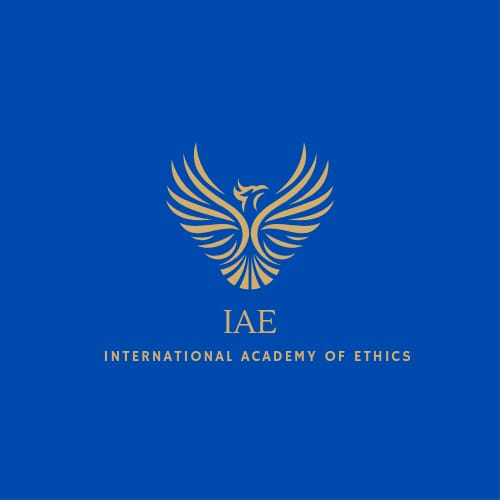I often ask myself what Ethics is in this world invaded by ever more advanced technology, mentally reviewing the most salient notions of my philosophical, sociological and psychological studies that I undertook in the past and that have left a mark in me, an “imprimatur,” that is difficult to remove.
Certainly, it will be the advancing years and the experience gained that will dictate in me a strong ethical tension that accompanies every one of my current actions beginning with my humanitarian commitment that began full-time over five years ago with increasingly prestigious assignments such as, for example, CEO of IHC, International Harmony Council, etc.
This life path of mine, however, recalls the ethical principles inculcated in me from an early age by my mother, a teacher, and my father, a ship commander, after the harsh years of Nazi-Fascism that saw him for three long years, very young, as a prisoner of war in various concentration camps, deployed in Germany and Poland.
This dramatic experience, which I tried to redeem by having him earn posthumously a medal for valor from the President of the Italian Republic, served to make me understand the value of democracy and respect for human rights, values propagated in particular by Gandhi, Martin Luther King and Nelson Mandela.
But what is meant by the term Ethics (in Greek, ἦϑος)? In the language of philosophy and of the social sciences, we mean by Ethics the custom, the norm of life, the conviction and the practical behavior of man and of human societies, and the institutions with which they manifest themselves historically.
I am reminded of my high school studies in philosophy, particularly on the great German philosopher Kant who argued that: “Ethics is not exactly the doctrine that teaches us how to be happy, but the doctrine that teaches us how we can make ourselves worthy of happiness.”
Immanuel Kant (Königsberg, April 22, 1724 – Königsberg, February 12, 1804) is considered one of the most important philosophers ever. Kantian morality is one of the noblest forms philosophy has ever developed concerning human action. But it would take a very long essay to discuss how morality has evolved over time and what differences we find in moral action through the centuries, in the dichotomy between good and evil that has always gripped human consciousness and awareness of doing good.
The intransigent Kantian ethic immediately calls to mind the biblical maxim of not doing to others what you do not wish done to you.
I will later give an exposition on how morality has changed over time, from Greco-Roman to Judeo-Christian to the present time. For the moment, I will just introduce the issue and stimulate your questions, insights and whatever else is useful for the evolution of the human being before the latter is engulfed by AI, i.e. Artificial Intelligence.
https://www.larecherche.it/testo.asp?Id=2530&Tabella=Articolo
https://www.academia.edu/42993150/ART_AND_SCIENCE_Which_relationship
